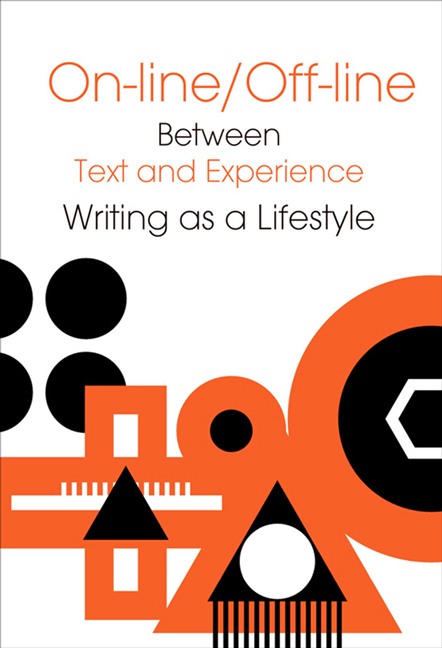Book contents
- Frontmatter
- Contents
- Editors’ Introduction
- ON-LINE/ OFF-LINE
- LITERATURE AND CONVERGENCE
- Poetics in the Age of Convergence
- Convergence and Communication: Genre Analysis of the websites of Polish Writers
- Towards a Generic Analysis of the Microblog (Based on a Study of Twitter)
- How Does the Hybrid Work of Art Exist?
- Liberature in Relation to the Reconfiguration of Aisthesis
- Literature in/of the City – Introductory Comments
- Literary Studies, History and Popular Culture – the Spaces of Convergence
- Afterpop: the Almost Perfect Convergence
- Transcultural Convergence? Polish Poets and Artists and the Oriental Verbo-visuality
- From an E-narrative Poem towards an Interactive Work of Art. Media Convergence Illustrated with DOWN by Zenon Fajfer and The Surprising Spiral by Ken Feingold
Convergence and Communication: Genre Analysis of the websites of Polish Writers
from LITERATURE AND CONVERGENCE
Published online by Cambridge University Press: 12 January 2018
- Frontmatter
- Contents
- Editors’ Introduction
- ON-LINE/ OFF-LINE
- LITERATURE AND CONVERGENCE
- Poetics in the Age of Convergence
- Convergence and Communication: Genre Analysis of the websites of Polish Writers
- Towards a Generic Analysis of the Microblog (Based on a Study of Twitter)
- How Does the Hybrid Work of Art Exist?
- Liberature in Relation to the Reconfiguration of Aisthesis
- Literature in/of the City – Introductory Comments
- Literary Studies, History and Popular Culture – the Spaces of Convergence
- Afterpop: the Almost Perfect Convergence
- Transcultural Convergence? Polish Poets and Artists and the Oriental Verbo-visuality
- From an E-narrative Poem towards an Interactive Work of Art. Media Convergence Illustrated with DOWN by Zenon Fajfer and The Surprising Spiral by Ken Feingold
Summary
Abstract
This article categorizes new forms of expressions on writers’ websites as means of main-taining communication with readers. The first part is dedicated to inter- and trans-medial analysis of various multimedia materials published on such websites (e.g.biographical notes, photographs, trailers).In the second part the website is analyzed as a hybrid text in which various types of expression are submitted to the main communicative purpose. On both levels of analysis the material is categorized in terms of the communicative function, for, as the author claims, the genre analysis of electronic discourse requires an approach which takes into consideration not only authorial intent and textual features but also the context of online utterance and the role of other partners of communication.
Key words: convergence and communication, writers’ websites genre analysis, new media, hybrid texts
“Beata Pawlikowska: a writer, a traveller, a hunter” (A32) – a short de-scription posted on this writer's website gives us an idea about the variety of topics we are just about to encounter here. The author presents herself in diverse social roles, as a travel writer, teacher of foreign languages, and a TV and radio personality. On this website one finds a variety of mate-rials: reportages, notes, travel plans, cooking recipes, information about books and TV shows, picture gallery, aphorisms, interviews… More- over, readers can post their own letters, texts or ads (“ISO travel mate”). Those different types of materials (from literature through functional texts to promotional materials and conversations) require a new conceptual framework, capable of accounting for this variety.
The works published in a volume Polska genologia literacka [Polish lit-erary genre theory] (2007) reflect some crucial problems of contemporary genre studies, which struggle to find new categories for texts created in a multimedia culture. Stanisław Balbus writes about the “extinction of genres”, understood as a crisis of theory, whose taxonomies and typol-ogies are not sufficient for new kinds of texts (Balbus 2007). Especially problematic are those texts, which draw from different media or semiotic systems. As Seweryna Wysłouch points out, the use of multimedia broke the monopoly of verbal culture and challenged the linguistic definition of a text (Wysłouch 2007: 300).
- Type
- Chapter
- Information
- On-line/Off-lineBetween Text and Experience: Writing as a Lifestyle, pp. 189 - 208Publisher: Jagiellonian University PressPrint publication year: 2016

